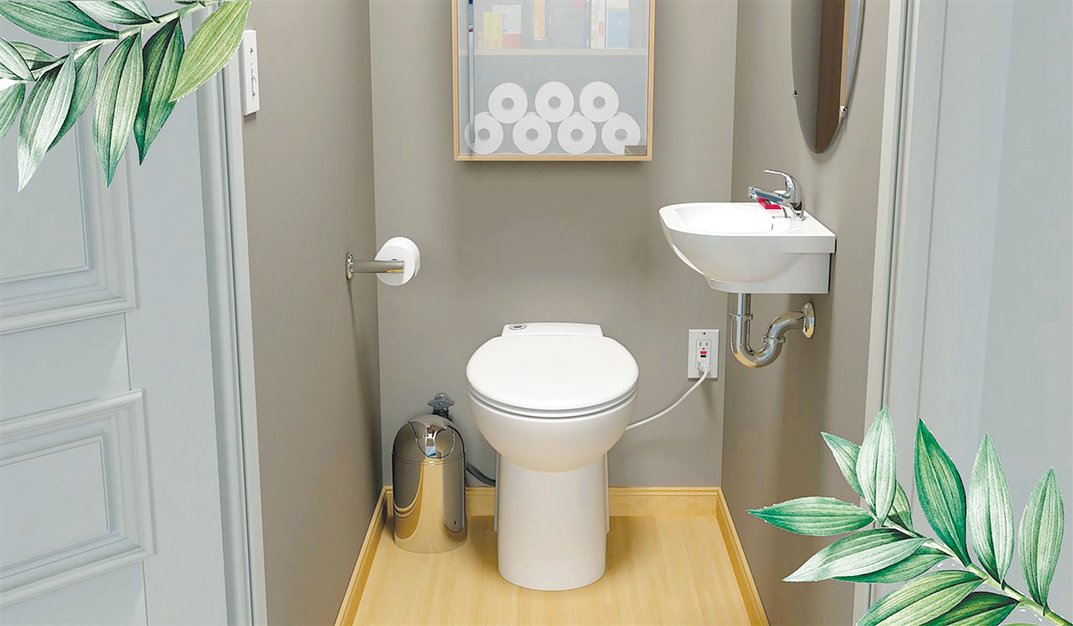
Today’s home improvements aren’t just about updating your home to make it more functional. Many homeowners are making strategic improvements that also help green their home and boost its resale value. One of the best places to start is also one of the most frequented rooms in the house: the bathroom.
Eco-friendly improvements help save money on utility bills, but that’s just the start. Green updates help you feel good about your impact on the earth, helping you eliminate water waste, use less energy and reduce use of toxic chemicals.
What’s more, green home improvements like those in the bathroom are in high demand in real estate, meaning your home can command a higher price at resale. In fact, over half of agents and brokers found that consumers were interested in sustainability when shopping for a home, according to a 2021 report by the National Association of Realtors.
Bathrooms are one of the best places to make green updates that streamline use and reduce waste because they make your home more comfortable and they get noticed if you decide to sell. For example, toilets can be huge water-wasters, but a simple update can provide significant savings.
Dual-flush toilet systems are a modern option that lets you choose how much water is used when you flush based on if there is liquid or solid matter that needs disposal. Update your current bathrooms with dual-flush models, and to add even more value to your home, add a new bathroom that features this water-saving toilet.
With modern technology, you can install a bathroom virtually anywhere. Saniflo has created innovative, eco-friendly, above-floor plumbing technology that allows for quick and easy installation with minimal hassle and mess. Highly focused on sustainability, these macerators and grinders work throughout a home, including on a second story, in a basement, in a garage or in a structure that sits on a slab, like a shed that would traditionally require concrete cutting to create below-floor drainage.
For example, the Sanicompact can be used to add a small guest bathroom in an existing space without drilling through concrete, which saves materials and reduces waste. The dual-flush feature flushes waste with 1.28 gallons per flush and liquids with only 1 gallon. In addition, the Saniaccess 3 macerating unit paired with Saniflo’s water-saving rear-discharge toilet is ideal for full bathrooms, using a smaller amount of water than conventional toilets: 1.28 versus 1.6 gallons per flush with no sacrifice in flushing power. With this product, you can feel confident that you are going green in your new bathroom. It is also recognized as water-saving by the Environmental Protection Agency’s WaterSense program.
Dino and Beth Gregorich of San Diego, California, opted for the Sanicompact that helped them transform a storage shed behind their swimming pool into a half-bath and changing room without breaking through concrete. Saniflo toilets and self-contained macerating units are California Energy Commission listed.
“You can use light flush with less water and a full flush with more,” he explains. “In San Diego, we pay a fortune for water, so we try to save as much as possible. Ultra-low-flush, high-efficiency toilets are very important here.”
In addition to upgrading the toilet, there are other important steps you can take to green the bathroom. Natural light and energy-efficient lighting are two practical and environmentally friendly ways to light the bathroom.
To start, swap out all light bulbs for long-lasting, energy-efficient LED bulbs. Then, consider opportunities for adding more natural light, such as a skylight that allows light in without sacrificing privacy. Depending on the type of skylight you select, this upgrade can provide solar heating, better ventilation, and reduce mildew and mold growth.
Finally, to truly green your bathroom, it’s important to be mindful about using natural materials and avoiding volatile organic compounds that are toxic to the environment. Popular eco-friendly products include glass, reclaimed wood, metal, bamboo, cork and porcelain. When choosing your materials, consider whether the materials will serve a long-lasting purpose and can eventually be recycled.
This article is courtesy of Brandpoint.